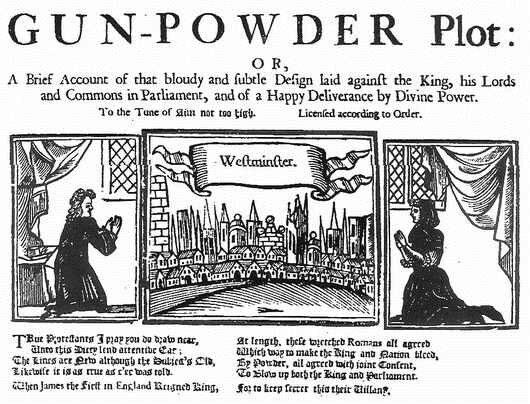
David Warsh: Aaron Burr, the Gunpowder Plot and our current scoundrel-in-chief
Vice President Aaron Burr in 1802
SOMERVILLE, Mass.
Donald Trump has begun appearing in the rear-view mirror. I have compared Trump to Aaron Burr, the scoundrel who sought to overturn the 1800 presidential election in the early days of the Republic. Hit this link for an explanation of what he did.
Later, starting in 1804, Burr sought to invent around U.S. elections altogether, hoping to foment a breakaway-nation that he could govern in the Spanish Southwest.
No other episode in American history comes close. But after following news about the Jan. 6 assault on the Capitol, I’m inclined to believe that the history of England offers a more illuminating comparison. I’ve been thinking about Guy Fawkes and the 17th Century Gunpowder Plot.
The background was the Protestant Reformation, which had begun in Germany, in 1517, with Martin Luther. Starting in 1533, King Henry VIII withdrew Britain its allegiance to the Roman Catholic Church. Catholics, especially Jesuit priests, had a hard time of it under Henry’s daughter Queen Elizabeth I. Elizabeth’s Catholic cousin, Mary, Queen of Scots, was executed for treason in 1587.
Elizabeth died childless, in 1603, without having named an heir. Queen Mary’s son, Elizabeth’s nephew, peacefully acceded to the throne as James I of England and James VI of Scotland. But repression of Catholics continued, and in 1605 a group of English Catholics plotted to blow up the House of Lords during the opening of Parliament, on Nov. 5. Betrayed by a letter of seemingly mysterious provenance, one of the plotters, Guy Fawkes, was discovered guarding 36 barrels of gunpowder in the basement the night before, quite enough to demolish the building. The plotters were captured and, one way or another, put to death, including some Catholic clergy linked to the plot.
The world was smaller then. Passions ran deeper. Globalization had only just begun. But it is hard to think of any other episode in Anglo-American history whose rhetorical aim resembled more closely that of the mob that descended on the U.S. Capitol on Jan. 6, having been dispatched on their mission by President Trump.
One group of skirmishers came within seconds of sighting Vice President Pence as he, along with his wife and daughter, was spirited out of the Senate chamber and into a hideaway, according to a Jan. 16 story in The Washington Post. The gunpowder plotters intended to kill King James and install his nine-year-old daughter on the throne as Catholic monarch. The Capitol Hill mob vigorously denounced Pence as a traitor for his failure to overturn the presidential-election results. A mock gallows was installed on the western approach to the Capitol.
Persecution of Catholics continued but was mild relative to the century before for the remainder of the reign of James I – he died in 1625 – but anti-Catholic sentiment persisted in England for two centuries, through a not-unrelated civil war and a very-related “Glorious Revolution.”
No one knows what might be the long-term effects of the assault on the Capitol. My hunch is that it will be remembered as thoroughly repugnant and rejected and condemned until it is forgotten. For a higher-resolution characterological account of the Trump story, see “What TV Can Tell Us about How the Trump Show Ends,” by Joanna Weiss. The Trump presidency resembled an antihero drama, Weiss says, more closely than reality TV, the saga of Tony Soprano her chief case in point.
With this emergency behind, I am returning this weekly to my main concern, economics, meanwhile finishing a book on the last hundred years of its textbook versions. As for my plans to shift to the Substack publishing platform, they are postponed; Economic Principals will move at the end of the year, by which time the book will have begun wending its way its way to the press. Luck be a lady this year!
David Warsh, a veteran columnist and an economic historian, is proprietor of Somerville, Mass.-based economicprincipals.com, where this column originated.
The original idea of the Electoral College
State population per electoral vote (2010 census)
From Robert Whitcomb’s “Digital Diary,’’ in GoLocal24.com
‘Maine legislators have been debating whether to join an interstate compact that would have made the state give all its Electoral College votes to the winner of the national popular vote.
I’m not happy when the Electoral College and the popular vote go in opposite directions, as in 2000 and especially in 2016, when the Russians gave the election to Trump, who they thought would be far friendlier than Hillary Clinton. Still, by making presidential candidates campaign all over the country and not just in densely populated states, the Electoral College supports federalism.
HHoh
The Electoral College was originally meant to be a group of wise men who would use their individual judgments in choosing a president and act to block corrupt demagogues from the office. Now they vote almost always on a party-line basis.
Here’s Alexander Hamilton’s understanding, as expressed in Federalist Paper #68, of what Electoral College members would be and expected to:
They would be...”men most capable of analyzing the qualities adapted to the station and acting under circumstances favorable to deliberation, and to a judicious combination of all the reasons and inducements which were proper to govern their choice.’’
Members would be "most likely to have the information and discernment" to stop the election of anyone "not in an eminent degree endowed with the requisite qualifications."
He warned that an election could be corrupted by the desire of "foreign powers to gain an improper ascendant in our councils." Hmm….
He wrote: “Talents for low intrigue, and the little arts of popularity, may alone suffice to elevate a man to the first honors in a single State; but it will require other talents, and a different kind of merit, to establish him in the esteem and confidence of the whole Union, or of so considerable a portion of it as would be necessary to make him a successful candidate for the distinguished office of President of the United States.’’
What happened?
Chris Powell: Why are Conn. and R.I. giving EB piles of money to do what it would do anyway?
USS Nautilus moored in Groton at the Submarine Force Museum.
What was the necessity of Connecticut Gov. Dannel Malloy's award the other day of $80 million to the Electric Boat Division of General Dynamics in Groton? {Rhode Island is giving the very rich company $34 million in incentives to expand at Quonset Point.}
The governor said that in exchange for the money, the company will increase its local employment by 1,900 people over the next 16 years, a state subsidy of $42,000 per job. But the federal government already had given the company the extra submarine work that was requiring that expansion of its workforce.
That is, the Malloy administration is paying EB to do what it was doing anyway, and as a military contractor EB is already getting all its money from government.
So was the state's payment necessary to keep EB in Connecticut, to prevent the company from moving to another state? That seems improbable, given EB's huge facilities in southeastern Connecticut and Rhode Island. They would not easily be relocated. Further, any risk of relocation would not speak well of Connecticut's congressional delegation, whose agitation for more submarine construction is partly responsible for the extra work coming to EB. With the federal government spending billions more on submarines, EB probably would not have minded being required to stay put.
While the governor called the state's payment to EB a "partnership," it looks more like corporate welfare from an administration that senses that, with its constant increases in taxes and business regulations, it has crippled the state's economy and feels ever more vulnerable to extortion by major corporations.
And does the Navy really need the extra submarines? As long as military contracting is such big business in Connecticut, that issue will get no more serious inquiry from the state's political leaders than the war in Afghanistan, now in its 18th inconclusive year.
xxx
SUBVERTING THE CONSTITUTION: The General Assembly and Governor Malloy are moving to put Connecticut into the "national popular vote" system of determining the votes of the state's presidential electors and thus determining the election of the president. Under the proposal Connecticut's electors would be required to vote for the candidate who led the national presidential vote.
There are many problems with this plan, starting with its subversion of the Constitution by undoing the Electoral College without a constitutional amendment and it making a compact among states without the approval of Congress as required by the Constitution.
Advocates of the "national popular vote" system say it would ensure that every vote for president counts, but it wouldn't. For it would nullify the votes of states on the minority side and diminish the influence of Connecticut and other small states, whose electors now represent more voters than the national average. The proposed system would have canceled Connecticut's votes in the 2004 presidential election, when Democrat John Kerry carried the state but lost the national vote to Republican George W. Bush. Connecticut's advocates of the "national popular vote" system seem to think that this state can never be on the minority side nationally, but it has been.
And just how is the national popular vote to be officially counted and totaled? There are no such counts and totals. The secretaries of the 50 states count only their own state's votes and certify their electors
The Electoral College has its disadvantages but so does the "national popular vote" system. The proposal would allow political corruption in "sanctuary states," nullifiers of federal immigration law -- particularly California and New York -- to steal more than their allotted electoral votes and control presidential elections by facilitating voting by their millions of illegal immigrants.
Chris Powell is a columnist for the Journal Inquirer, in Manchester, Conn.




